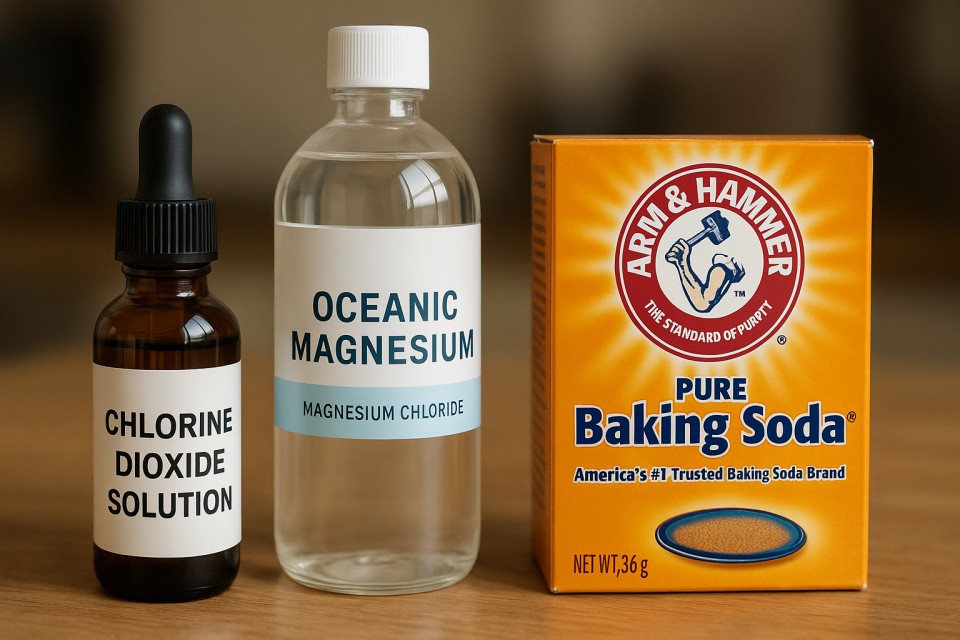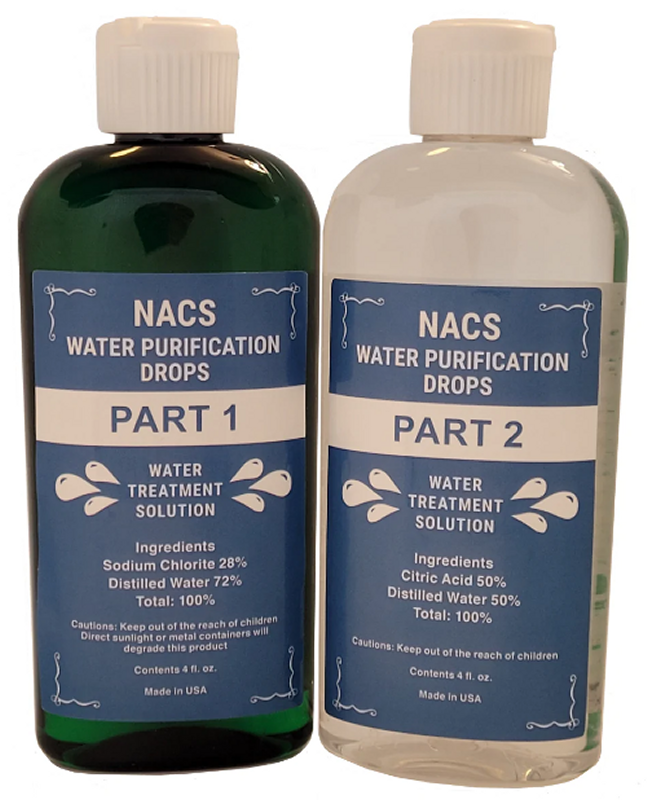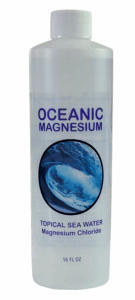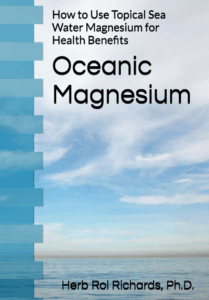An increasing number of individuals are exploring the potential health benefits of mixing chlorine dioxide (ClO₂), magnesium chloride, and baking soda (sodium bicarbonate). Each of these natural substances has distinct properties that, when used together, may support the body’s natural ability to fight infection, reduce inflammation, balance internal systems, and promote detoxification.
Let’s examine each compound’s benefits, application protocols, and synergistic potential when incorporated into a health-supportive regimen.
1. Chlorine Dioxide (ClO₂): A Selective Oxidizer and Antimicrobial Agent
Key Properties:
Chlorine dioxide is a potent oxidative agent recognized for its ability to target and disrupt pathogens, including bacteria, viruses, fungi, and certain parasites. It operates through a selective oxidation process that spares healthy cells while neutralizing harmful microorganisms. Available in DIY 2-part kit, or ready-to-use CDS 3000.
Potential Health Applications:
- Infections: Shows activity against pathogens like E. coli, Salmonella, influenza viruses, and even HIV.
- Chronic Illness: Used anecdotally to support recovery in Lyme disease and autoimmune conditions.
- Detoxification: Helps reduce microbial and toxic burdens in the body.
Recommended Usage:
- Start Small: Mix 1–3 activated drops in 4–8 oz of water.
- Best Timing: Take on an empty stomach, 30–60 minutes before meals, up to 2–3 times per day.
- Safety Note: Overuse may lead to excessive detox, leading to nausea or irritation.
2. Magnesium Chloride (Oceanic Magnesium): The Essential Cellular Support Mineral
Key Properties:
Oceanic Magnesium, magnesium chloride sourced from seawater, is one of the most bioavailable forms of magnesium. It supports over 300 enzymatic functions in the body, from energy production and nerve function to immune response and cardiovascular health and is far more effective when applied topically (rubbed into the skin) or taken orally.
Potential Health Applications:
- Muscle and Nerve Support: Alleviates cramps, fatigue, and spasms.
- Cardiovascular Function: Helps regulate blood pressure and heart rhythm.
- Neurological Benefits: May reduce migraines, elevate mood, and improve sleep.
- Bone Strength: Facilitates calcium metabolism and supports bone integrity.
Recommended Usage:
- Oral Intake: Dissolve ½ teaspoon of magnesium chloride in a glass of water; drink once or twice daily.
- Topical Application: Use magnesium oil (magnesium chloride + water) on skin for direct absorption, especially over joints or tense muscles.
- Bath Therapy: Add 1–2 cups of magnesium flakes to a warm bath; soak for 20–30 minutes to aid relaxation and detoxification.
3. Baking Soda (Sodium Bicarbonate): The Gentle Alkalizer
Key Properties:
Baking soda acts as a natural buffer, helping to regulate the body’s pH. It supports metabolic and kidney function and can be a useful tool for reducing inflammation and improving overall alkalinity.
Potential Health Applications:
- Acidosis Relief: Helps balance pH in the case of metabolic acidity.
- Digestive Support: Eases acid reflux, heartburn, and indigestion.
- Kidney Function: Assists in neutralizing acidic waste products.
- UTI Prevention: Makes the urinary tract less hospitable to bacteria by alkalizing the urine.
Recommended Usage:
- Oral Intake: Mix ½ teaspoon into a glass of water and drink in the morning on an empty stomach.
- Topical Use: Add 1 cup to a warm bath to ease skin irritations and enhance detox.
- Caution: Extended use may disrupt acid-base balance. Not recommended for individuals on sodium-restricted diets or with impaired kidney function.
Synergistic Protocols for Common Conditions
When used strategically, these three agents may complement each other to create a broad-spectrum wellness routine.
General Detox Protocol
- Morning: Drink water with ½ tsp baking soda to alkalize the system.
- Midday: Take chlorine dioxide (1–3 drops activated) to neutralize microbial invaders.
- Evening: Use magnesium chloride rubbed on the skin (applied topically) to support energy, calm, and cellular repair.
Chronic Fatigue Syndrome (CFS)
- Daily: Magnesium chloride (½ tsp in water twice daily) to promote mitochondrial function.
- Alternate Days: Chlorine dioxide (1–2 activated drops in water) to reduce hidden infections.
- As Needed: Baking soda (½ tsp in water) to aid pH balance and reduce cellular stress.
Respiratory Infections (Cold, Flu)
- Every 4–6 Hours: Inhale warm steam infused with 1–2 drops of chlorine dioxide for respiratory cleansing.
- Twice Daily: Magnesium chloride topically to reduce inflammation and bolster immunity.
- As Needed: Baking soda to maintain systemic pH and ease mucosal irritation.
Autoimmune Support
- Morning: Baking soda to reduce acidity and inflammation.
- Twice Daily: Magnesium chloride (oral or topical) to stabilize immune function.
- Alternate Days: Chlorine dioxide to control microbial overgrowth and improve gut terrain.
Acute Infection Response
- Hourly (Short Term): Chlorine dioxide (1 to 3 drops in water) every hour for up to 8 hours, then taper to 2–3 times daily.
- Ongoing Support: Magnesium chloride twice daily to combat fatigue and support immunity.
- Daily Maintenance: Baking soda once daily to support metabolic balance and reduce systemic inflammation.
Precautions and Safety Guidelines
| Substance | Key Precautions |
| Chlorine Dioxide | Always use food- or pharmaceutical-grade. Avoid overuse. Stop if nausea occurs. |
| Magnesium Chloride | High doses may cause diarrhea or low blood pressure. Monitor dosage. |
| Baking Soda | Can raise sodium levels; avoid with kidney issues or low-salt diets. |
Important: Always consult a qualified healthcare provider before beginning any new health protocol, particularly if you are managing a chronic illness or taking prescription medications.
Chlorine Dioxide, Magnesium Chloride, and Baking Soda
The combined use of chlorine dioxide, magnesium chloride, and baking soda presents a versatile, natural toolkit for supporting the body’s detoxification, immune balance, and energy systems. When applied with care and consistency, these three substances can contribute significantly to health maintenance and recovery. However, individual responses may vary, and personalized guidance is always recommended for optimal safety and results.






Leave a Reply